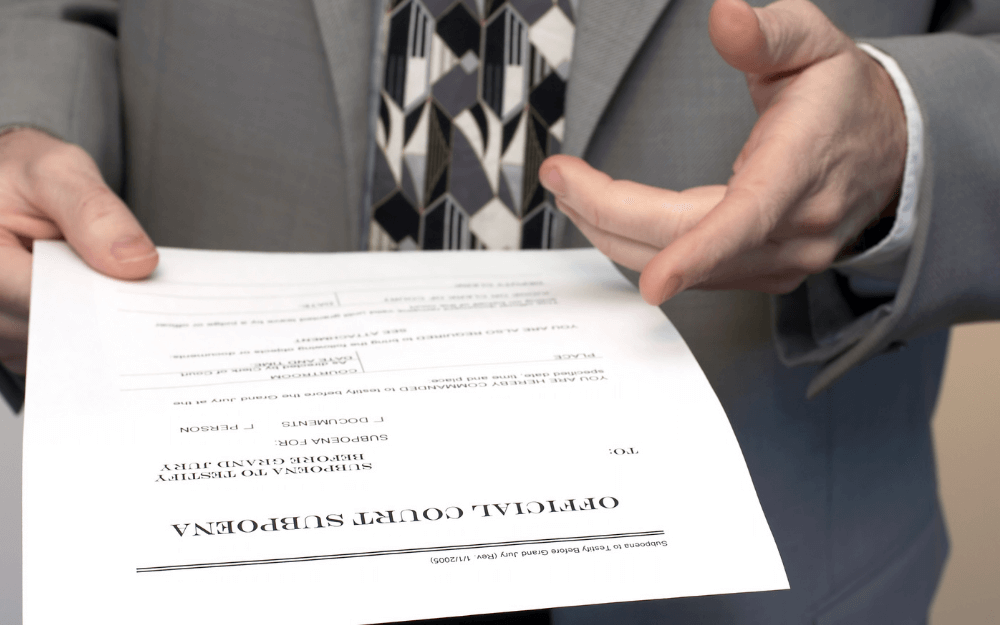During the course of your life you may be served with a subpoena in either a criminal or civil case. For this post we will focus on civil subpoenas.
What is a subpoena? Well, a subpoena is a written document issued by a court or an attorney acting as an officer of the court. Generally, a subpoena can do a few things. First, a subpoena can be used to have a witness produce documents to the parties in a lawsuit. A subpoena is a legal command. Failure to comply without a good reason can result in contempt of court proceedings.
Next, a subpoena can be used to command a person to show up at a particular place to give testimony at trial or at a deposition. Think of the power of a subpoena for a minute; you can be commanded by law to appear at a location you don’t want to go to and testify about something you may not want to talk about. That is a power that must be used by courts and attorneys judiciously.
So if you get a subpoena what can you do about it? First, if you have no good reason to excuse you from the command, you must comply with the subpoena. However, if you do have a good excuse from performing, you can submit a written objection to the person who issued the subpoena. There may be further proceedings in court to determine if your excuse is valid or if you must comply with the subpoena. You will be notified if there are such proceedings.
Subpoena’s are serious matters. You must comply with the commands in a subpoena unless you have a good excuse not to. Even then, a court may later compel you to comply.
If you get a subpoena in a case contact us at Fargo Patent & Business Law. We can help you interpret the subpoena and help you prepare for testimony. You can reach us at www.fargopatentlaw.com or 701-566-7571.

